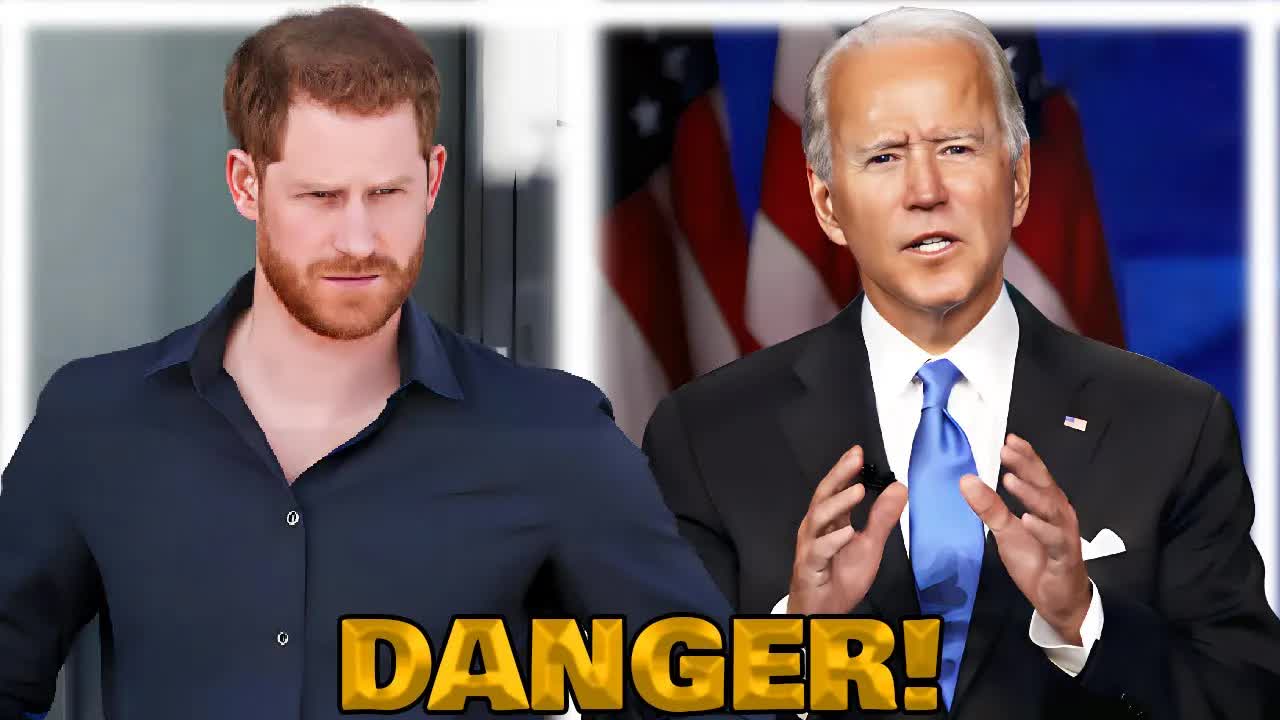The News
Biden Administration Under Fire for Concealing Prince Harry’s Visa Records
The Biden administration is facing scrutiny over its handling of Prince Harry's visa records, with accusations of secrecy surrounding the matter.
Recent reports indicate that U.S. officials have denied a request to release Harry's visa application, raising concerns about whether he was truthful regarding his past drug use.
This situation has prompted attorneys from the Heritage Foundation, a conservative think tank, to take legal action in hopes of compelling the Department of Homeland Security (DHS) to respond to their Freedom of Information Act request regarding Harry's records.
In a recent court hearing, Samuel, the Heritage Foundation's lead attorney, shared a letter from Jimmy Wolfe of DHS.
The letter notably declined to confirm or deny the existence of any records related to Harry.
This lack of transparency has only intensified the Heritage Foundation's resolve to pursue further legal avenues to obtain the requested documents.
Niall Gardner, a representative of the Heritage Foundation, expressed dissatisfaction with the administration's approach, labeling it as “zero-transparency.”
He emphasized that the efforts to block information requests are unacceptable and vowed to challenge DHS's position.
Public sentiment appears to be shifting, with many expressing frustration at the perceived double standards that exist for celebrities compared to ordinary citizens.
Critics argue that everyone should be subject to the same rules, regardless of their status or wealth.
The reluctance to disclose Harry's visa application raises suspicions about his honesty regarding drug use, suggesting that if he had been forthright, there would be no reason to withhold the information.
The implications of this situation extend beyond mere curiosity.
If it turns out that Harry was granted special treatment due to his royal status, it could undermine public trust in the immigration system.
Many Americans face strict scrutiny when applying for visas, and the notion that a prince might evade similar standards is troubling.
There are concerns that if Harry were found ineligible for a U.S. visa, it could set a precedent that might affect others who have faced visa denials for similar reasons.
Moreover, the issue of public interest cannot be overlooked.
Harry, as a high-profile figure, represents a case where the application of immigration law could be perceived as inconsistent.
If he received preferential treatment, those involved in granting him access should be held accountable.
Under normal circumstances, confidentiality might be justified, but given Harry's previous admissions about his life, including substance use, arguments for privacy seem weak.
The timeline of Harry's entry into the United States has also raised eyebrows.
Reports indicate that he entered the country through Canada, possibly complicating the visa application process.
Questions arise about whether he applied for a U.S. visa before or after his entry, and if there were any irregularities in how he was allowed to enter.
This ambiguity only adds to the sense that something is amiss.
As the Heritage Foundation continues to seek clarity on Harry's drug use disclosures, the stakes are high.
If he was honest on his visa application, then there should be no fear in releasing the information.
The more the administration attempts to conceal details, the more speculation grows about potential violations of the law.
Transparency is crucial, especially when it comes to issues that affect both the privileged and the everyday citizen.
The broader implications of this case highlight a systemic issue within the immigration process.
Many permanent residents in the U.S. work hard, pay taxes, and adhere to the rules, yet they often face lengthy waits for green card renewals.
In contrast, Harry's ability to travel freely raises questions about equity in the system.
The disparity between the treatment of high-profile individuals and average citizens is glaring.
If there are doubts about Harry's honesty on his visa application, the public deserves to see the relevant documents.
The principle of fairness should apply universally, regardless of one's social standing.
Many believe that equality under the law is a foundational aspect of American values, and this situation challenges that belief.
Additionally, Harry's public persona and past statements about his family add another layer to this narrative.
His relationship with his brother, Prince William, has been fraught with tension, particularly following Harry's decision to step back from royal duties.
Some speculate that his newfound fame and influence could have been leveraged more effectively had he remained within the royal framework, rather than pursuing a path that has led to increased scrutiny.
As this story unfolds, it remains to be seen how the Biden administration will respond to the growing pressure for transparency.
The implications of this case reach far beyond Prince Harry, touching on fundamental issues of fairness, accountability, and the integrity of the immigration system.
The public is watching closely, eager for answers that could reshape perceptions of privilege and justice in America.




































































